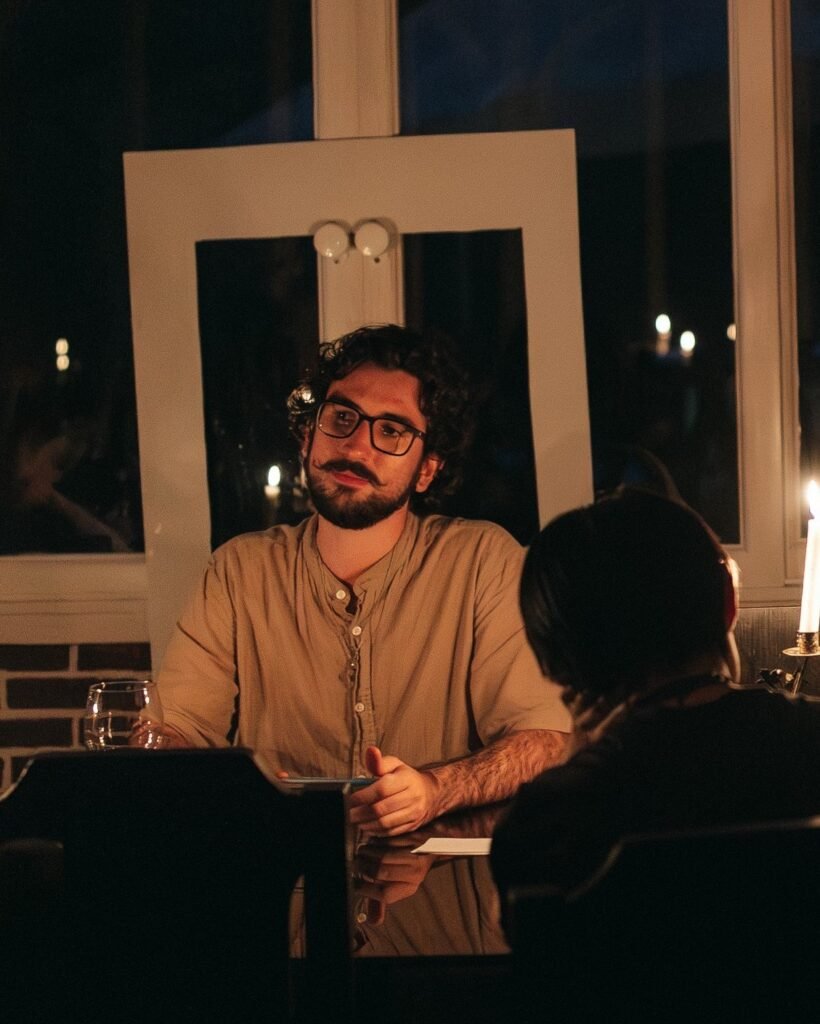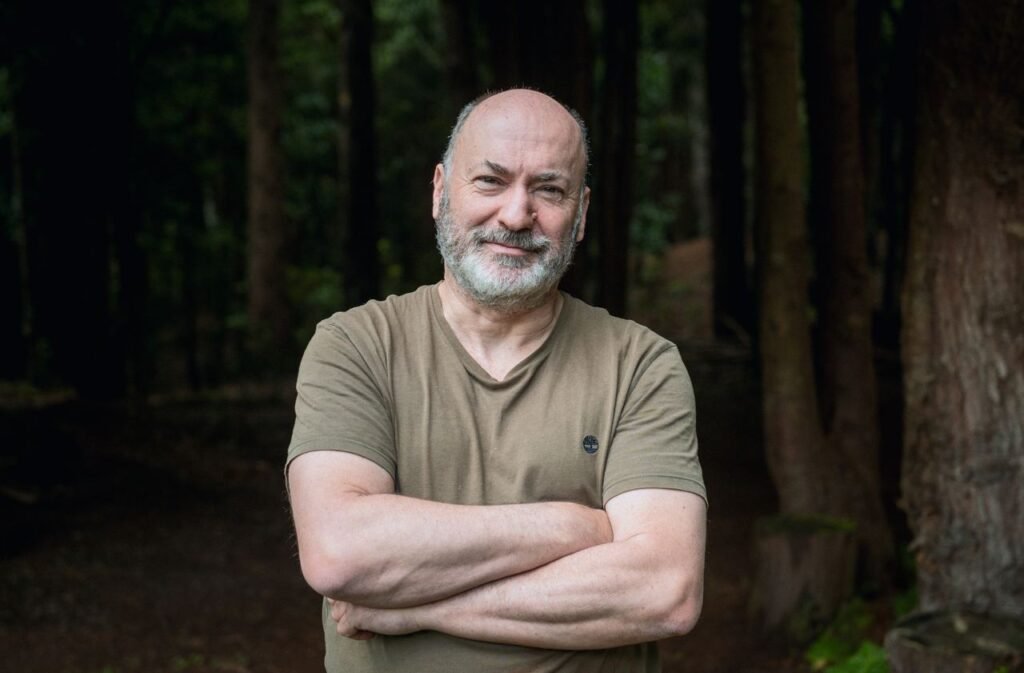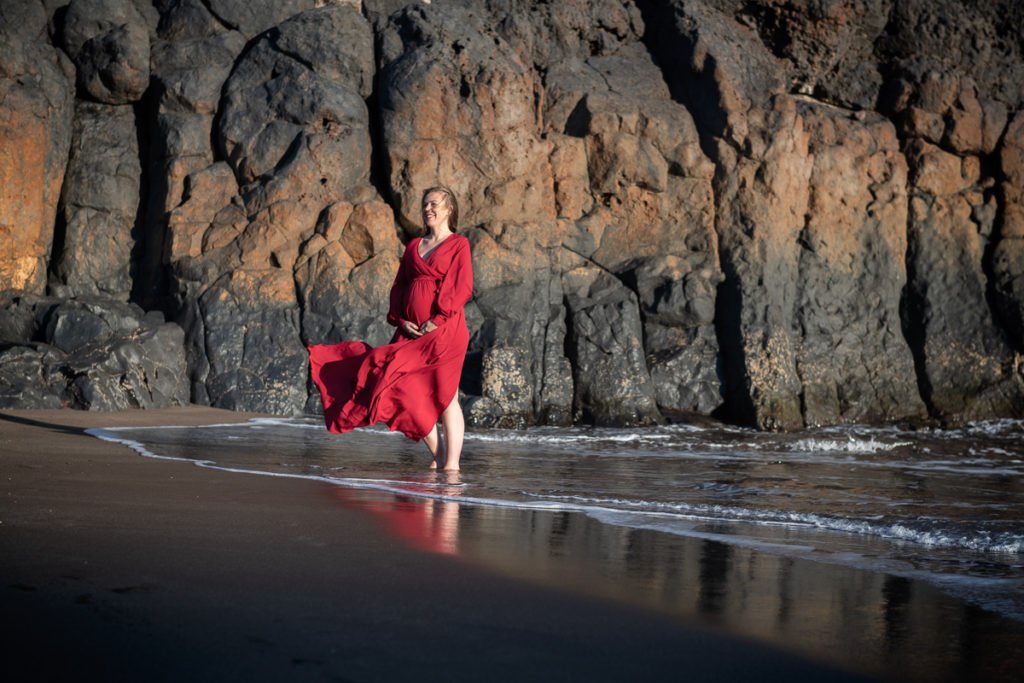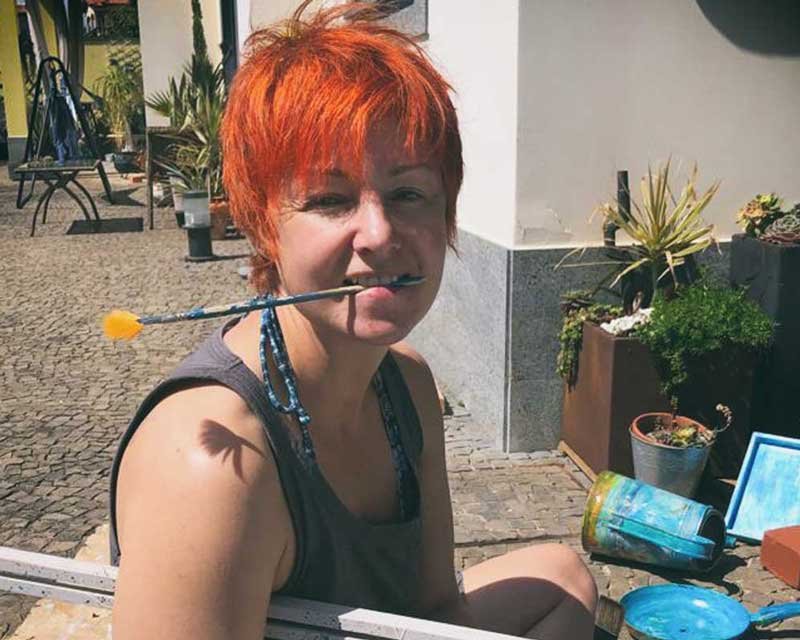Earlier this year, lost in a new country and not fully understanding the dynamics of the place I now call home, I stumbled upon a piece of information that would change my idea of what I could do in this new place: an Erasmus project focused on art and feminism. I had never heard of Erasmus. The idea of traveling with all expenses covered to create art and exhibit it in Berlin seemed both incredible and impossible. Doubts overwhelmed me: can this be real? Also – what if my English was not good enough?
But the inner voice insisted that I try. The first phase would be in Madeira, where I was already settled, which meant that my biggest challenge would be facing my fears. And that was just what I needed: to overcome fear. So I took the plunge.

In Madeira, I joined a diverse group of 24 women from Slovenia, Romania, Germany and Portugal. Among us were photographers, nurses, engineers, artists and also people who had never created anything with their hands. It was intimidating and, at the same time, comforting to discover that we shared not only our strengths but also the scars and challenges of being a woman.
The initial activities invited us to reflect on our identity and experiences. Questions such as “What does being a woman mean to you?” led to profound and universal answers: “Because I am strong and powerful” or “Because I feel persecuted if I walk alone at night”. At that moment, it came upon me that it doesn’t matter where you live; we all face the same struggles.
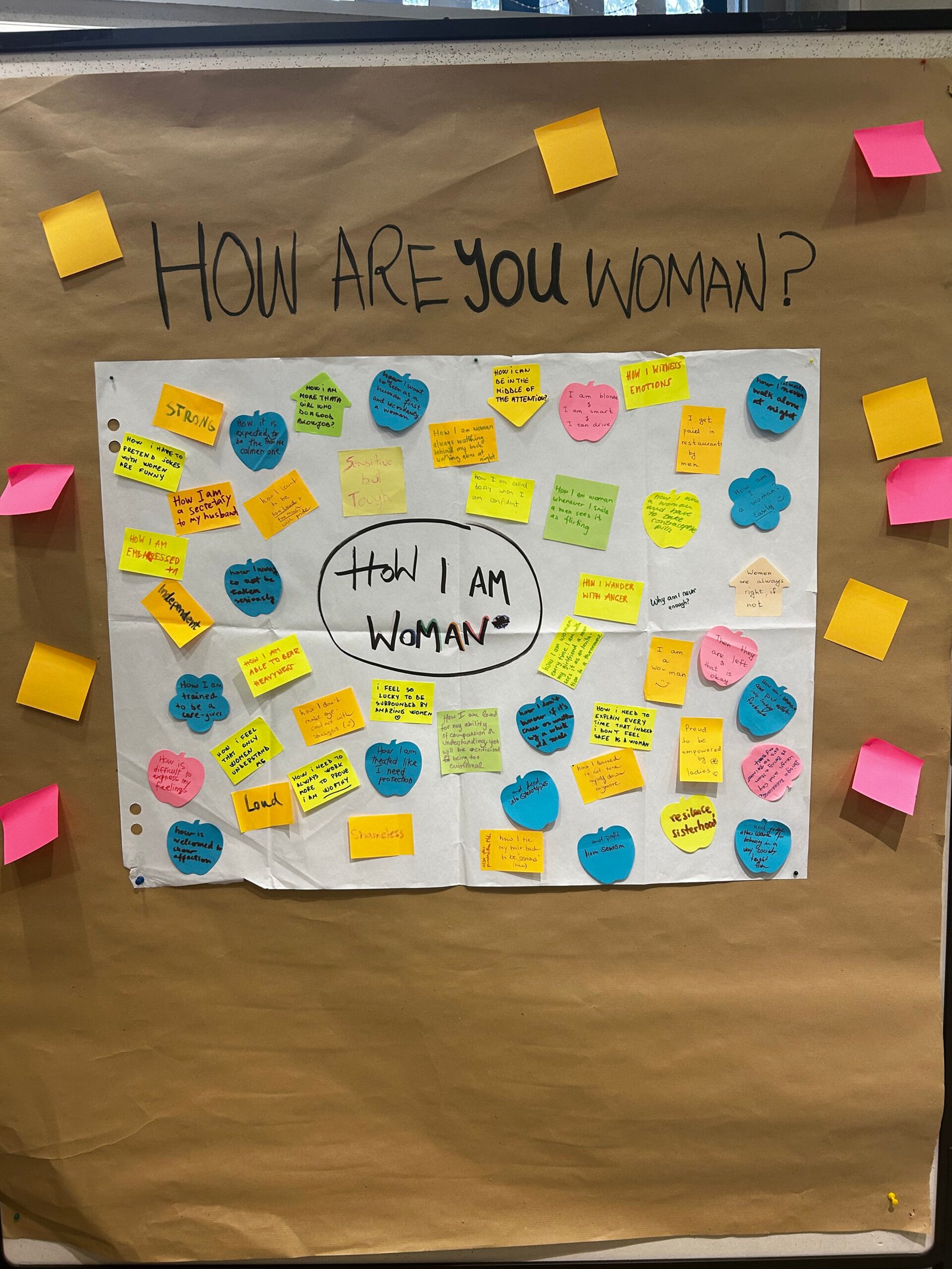
The main workshop, led by an Italian artist living in Madeira, was a magical moment. With her synesthesia, she saw colors in sounds and guided us in an exercise where we created a collective playlist as inspiration to paint. Music, colors and our emotions intertwined in a unique experience. The next day, each one of us chose a word that symbolized our experience as women to capture it in our personal work.
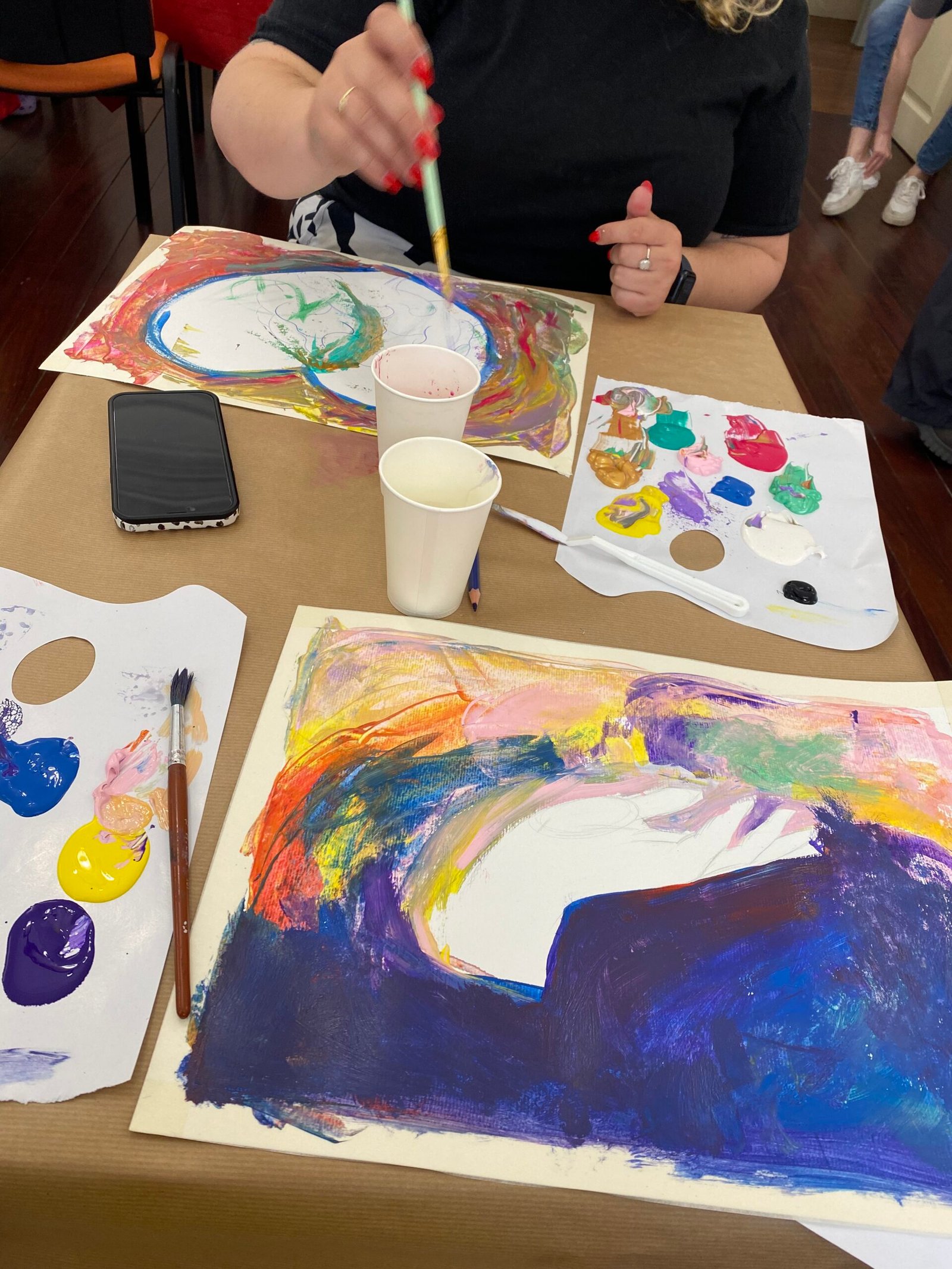
It was then that something unexpected happened. One of the girls decided to paint on her dress, starting a conversation about the “perfect” body by social standards. What began as a reflection became a collective act: with her consent, we painted our hands and touched her body, replicating moments when we ourselves had been touched without permission. It was deeply emotional, and a reminder that our body belongs to us and that no one has the right to invade it without consent.
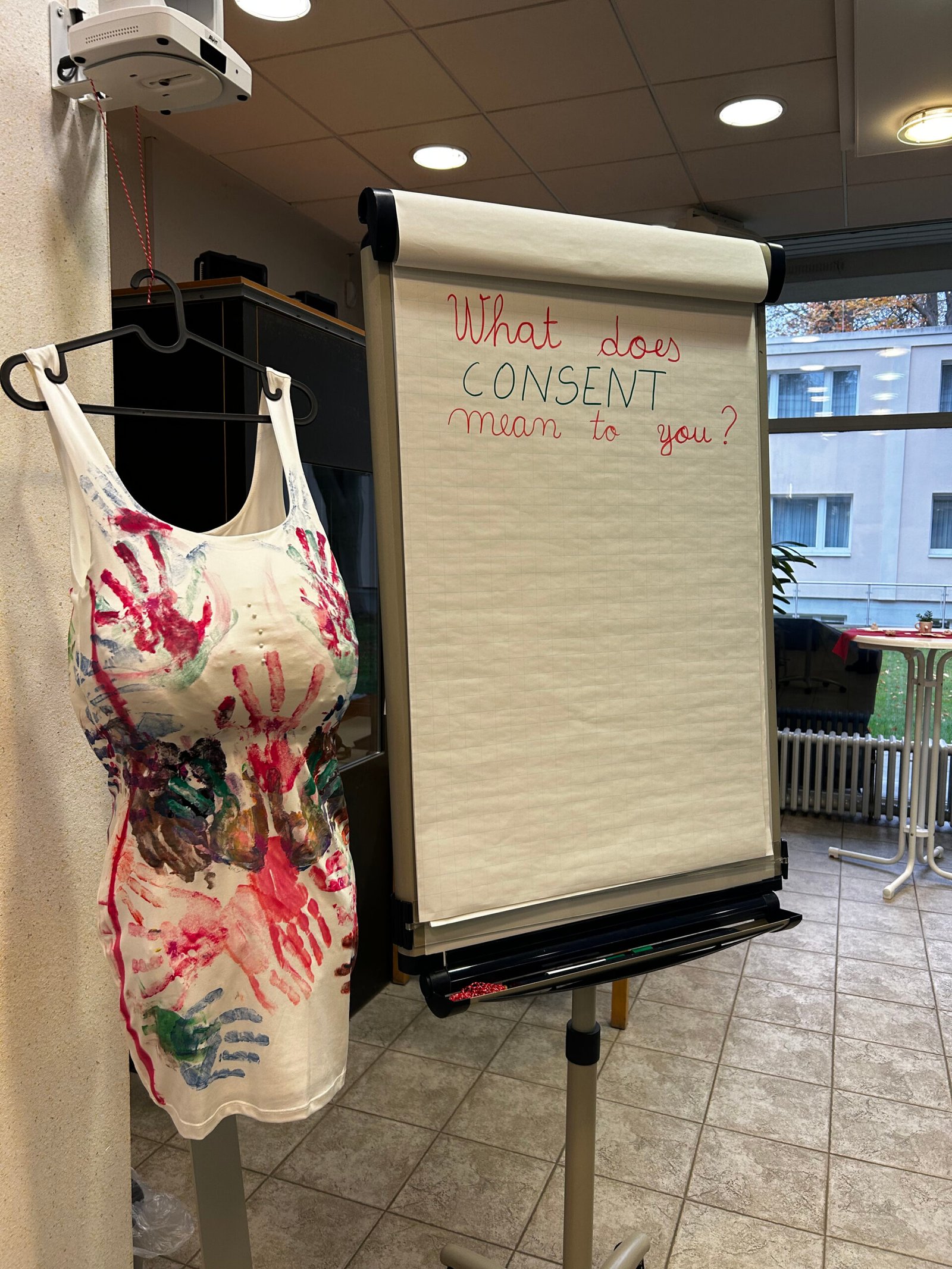
The second step took us to Slovenia for four days, to a place surrounded by mountains and nature. Meeting up with the same colleagues, along with some new faces, strengthened our bonds. We talked about women’s rights in our countries and what we take for granted when comparing our realities.

The pottery workshop was a discovery for many, when we created unique pieces while sharing our stories. Between typical meals, karaoke and long walks in the forest, a safe space was created to explore our experiences. The trip ended in Ljubljana with a feminist tour, where we learned about the history of women that is often (what a surprise) left in the shadows.
The third stage, in Romania, was the most challenging. In Bucharest, we explored the city through group activities and workshops on tools for personal growth. We worked on a collective mosaic project, which was initially complex to carry out, but we managed to overcome the difficulties together in one way or another – but we didn’t know that until Berlin where we had to put together the exhibition of the piece.
The conversations in Berlin about our time in Romania pushed us to question our preconceptions about femininity and being a woman. It was uncomfortable, but also deeply necessary. I am grateful for these spaces that, though uncomfortable, invite us to reflect and grow.
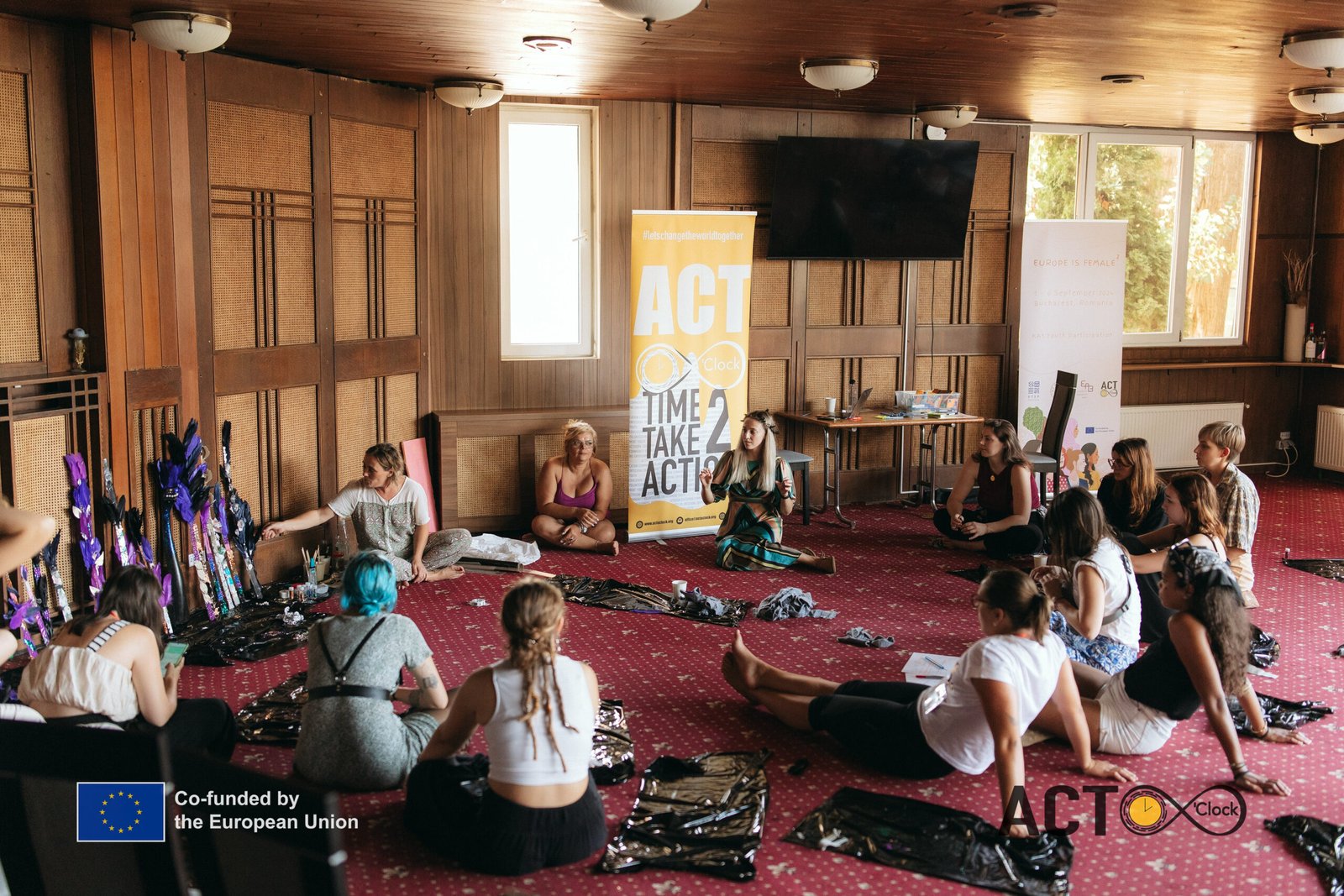
And now Berlin: with the culmination of the project and a celebration.
Seven months after the project start, we arrived in Berlin for the last step: our exhibition. We showed all the works we had created in each country, in an incredible space that reflected the transformative journey we had been through. Final activities included linocut and collage workshops, discussions on poetry and feminism, and a tour on the history of the black queer community in Berlin.
The exhibition was a success, culminating in a monologue by a comedian that made us laugh and reflect. She closed with a powerful wish: that one day, her jokes about the problems of being a woman will no longer be funny because those problems will no longer exist.
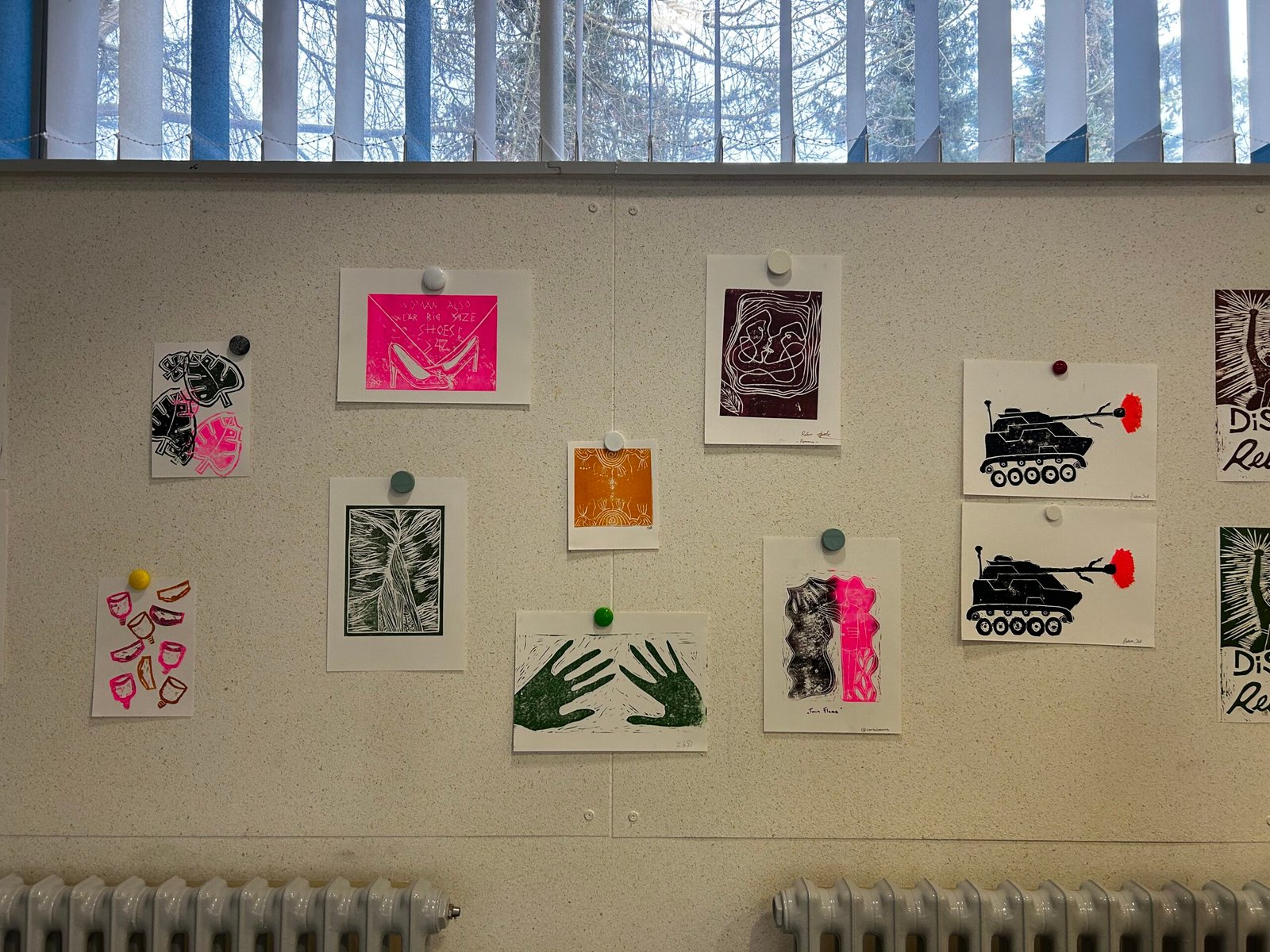

The project not only allowed me to get to know other cultures and share my art, but it also transformed me profoundly. It helped me understand that vulnerability is a source of power, and that art can be a tool for healing and resistance. Participating in this experience was the first step in reconnecting with myself, with other women and with the possibility of imagining a better world (or at least trying). I learned that fear is not a limit, but an invitation to grow.
Accepting that call was one of the best decisions I have ever made.
If you have ever considered participating in an Erasmus project, let me tell you that it is worth every second of doubt and fear. It is a space to explore, heal and build a better future.
This is your cue to dare, to throw yourself into the unknown.
By Karla Gonçalves
Disclaimer: Europe is Female project is co-funded by the Erasmus+ Programme of the European Union.

